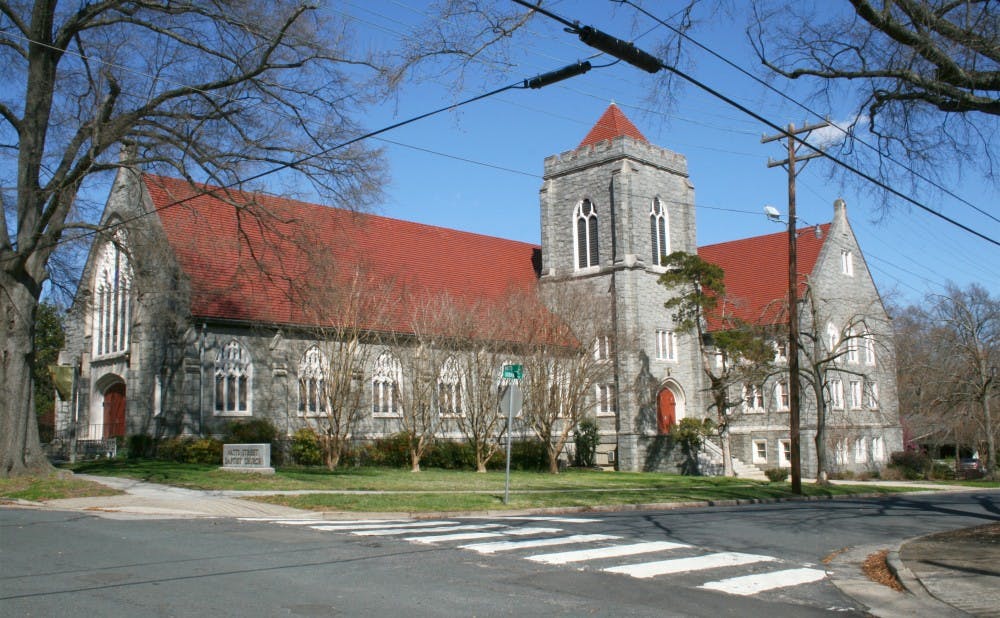On the 47th anniversary of Martin Luther King, Jr.’s death, his philosophy of activism is still being heeded by community leaders across America.
Duke alumnus Rev. Rodney Sadler—who received his Ph.D. in Hebrew Bible and Biblical Archaeology from the Divinity School in 2001—was the guest preacher at a a celebration service Sunday for Martin Luther King Jr. Day at Watts Street Baptist Church, where about 100 churchgoers were in attendance. Sadler’s sermon focused on the destructive nature of racial distinctions and the need for individual action in the fight for widespread equality.
“Race is a lie, a monstrous myth,” Sadler said during his sermon. “It is a legitimating ideology, a fiction crafted to justify the dehumanization of some peoples so that we can use and abuse them.”
Sadler commended activists—including Bree Newsome, who climbed a 30-foot flagpole at the South Carolina statehouse to remove the Confederate flag during June of last year—for their courage and initiative. Sadler compared Newsome’s proclamation that “we can’t wait any longer” to King’s similar conviction that “human progress never rolls in on wheels of inevitability,” noting the importance of each statement places in active efforts for societal advancement.
“We have to begin with small tangible acts to confront racism,” Sadler said. “What if there’s still evil in this world not because we’re waiting on God, but because God is waiting on us?”
Sadler has been involved in the Duke community for some time. In addition to his Ph.D. work, he served as a visiting lecturer and interim co-director of the Office of Black Church Studies. He resided in Durham for nine years prior to moving to Charlotte, where he now serves as Associate Professor of Bible at the Union Presbyterian Seminary.
In addition to his work as an educator, Sadler is an activist working for a variety of causes throughout North Carolina. He currently serves in the leadership of the North Carolina chapter of the National Association for the Advancement of Colored People and is part of North Carolina’s Moral Monday movement, which has opposed polices of North Carolina's Republican controlled state legislature.
“[Moral Monday] was a response to the aggressive legislation that was coming out of the general assembly,” Sadler explained in his sermon. “The American Legislative Exchange Council basically used North Carolina as its guinea pig, trying to put through a whole lot of 'conservative' ideology, which really wasn’t conservative; it really ended up being extremist.”
Sadler added that the assembly’s legislation rolled back Medicaid expansion—part of the Affordable Care Act—and removed health insurance coverage for 500,000 North Carolina residents. The first Moral Monday was led by Rev. William Barber and took place in 2013 as a protest of issues, including limits on Medicaid expansion, denial of unemployment benefits and changes in voting rights. During the second Moral Monday protest, Sadler was arrested. In his sermon, Sadler thanked his lawyer—who was in attendance at Sunday’s service.
The 10th annual Mass Moral March on Raleigh & HKonJ People’s Assembly will take place on Saturday, Feb. 13. The event will represent the sort of mass-effort for change often mobilized by King, Sadler noted.
“[Martin Luther King Jr. was] a great saint of the church, a great leader of people, who thought that we could do better, that we could be better, that we could be one,” Sadler said.
Get The Chronicle straight to your inbox
Sign up for our weekly newsletter. Cancel at any time.

